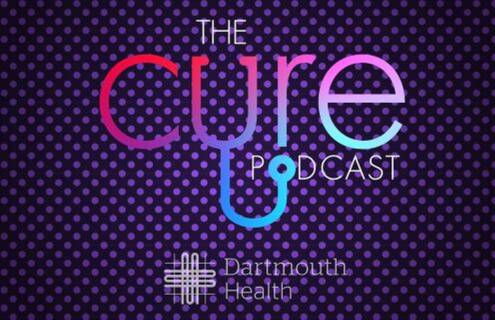
[T]he role of these AI models is to enhance the clinical decision-making, and be in a supportive role, rather than replacing the clinicians.
Saeed Hassanpour, PhDIt’s no surprise as artificial intelligence (AI) continues to impact more aspects of our lives, that it’s also reshaping the practice of healthcare. In a recent episode of Dartmouth Health’s “The Cure Podcast,” hosts Jose R. Mercado, MD, regional medical director for inpatient quality at Dartmouth Health, and Jessica L. Swain, director of infection prevention and control at Dartmouth Health, are joined by Saeed Hassanpour, PhD, a Dartmouth Cancer Center researcher and director of the Dartmouth Center for Precision Health and Artificial Intelligence, to discuss how AI is changing the way healthcare is conducted.
This episode explores how AI is already impacting patient care, diagnostics, and the daily workflow of healthcare professionals. It also addresses the pros and cons of using AI in clinical settings, reviews real-world examples of AI tools currently in use, and offers a glimpse into the future of personalized medicine powered by AI.
Whether you’re intrigued about AI’s potential or wary about its implications, this episode offers a balanced look at how healthcare professionals can harness AI to improve care while keeping patients at the heart of every decision. Listen in to learn how AI is transforming medicine—one algorithm at a time.
Listen to episode 38 of “The Cure” HERE
“In my opinion, the human aspect is very important in clinical care, and the role of these AI models is to enhance the clinical decision-making, and be in a supportive role, rather than replacing the clinicians,” Hassanpour said. “The human touch is very crucial, and the role of these AI models is to provide a second opinion, help clinicians with more accurate and efficient decision-making, have access to biomedical knowledge or a different insight from history, or different imaging and laboratory results of a patient at the fingertip.”
Subscribe to “The Cure” wherever you get your podcasts. Visit bit.ly/40Rrj5K for all episodes.
About Dartmouth Health
Dartmouth Health, New Hampshire’s only academic health system and the state’s largest private employer, serves patients across northern New England. Dartmouth Health provides access to more than 2,000 providers in almost every area of medicine, delivering care at its flagship hospital, Dartmouth Hitchcock Medical Center (DHMC) in Lebanon, NH, as well as across its wide network of hospitals, clinics and care facilities. DHMC is consistently named the #1 hospital in New Hampshire by U.S. News & World Report, and is recognized for high performance in numerous clinical specialties and procedures. Dartmouth Health includes Dartmouth Cancer Center, one of only 57 National Cancer Institute-designated Comprehensive Cancer Centers in the nation, and the only such center in northern New England; Dartmouth Health Children’s, which includes the state’s only children’s hospital and multiple locations around the region; member hospitals in Lebanon, Keene, Claremont and New London, NH, and Windsor and Bennington, VT; Visiting Nurse and Hospice for Vermont and New Hampshire; and more than 24 clinics that provide ambulatory and specialty services across New Hampshire and Vermont. Through its historical partnership with Dartmouth and the Geisel School of Medicine, Dartmouth Health trains nearly 400 medical residents and fellows annually, and performs cutting-edge research and clinical trials recognized across the globe with Geisel and the White River Junction VA Medical Center in White River Junction, VT. Dartmouth Health and its more than 13,000 employees are deeply committed to serving the healthcare needs of everyone in our communities, and to providing each of our patients with exceptional, personal care.